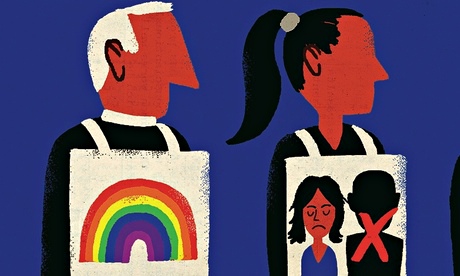
Should you ever find yourself needing to leave the country in a hurry – and haven’t we all been the target of a nationwide manhunt now and again? – here’s a tip: don’t assume that an airport with “international” in its name is the best place to catch a flight to Rio. An amusing recent study, reported by the psychology blog Science Of Us, found that “international” is often a sign of insecurity: smaller airports use the word twice as often as bigger ones. (Compare “Norwich International Airport” with “London Heathrow”.) The psychologist Paul Rozin and colleagues also discovered that students at the University of Pennsylvania were much likelier to describe their university as “Ivy League” – which, technically, it is, though many Americans don’t realise that – than students at Harvard, which everyone knows is an Ivy. (Oh, and the study appeared in Psychological Science, which is exactly the kind of name you’d expect psychologists to give to one of their journals: they’re paranoid about not being perceived as real scientists.)
All of which is further evidence for the wisdom in that line from Hamlet about the lady protesting too much: strenuously asserting something is often a sign that, really, you doubt it, or believe the opposite. The Freudians called this “reaction formation”: when you fear your own desires, one defence mechanism is to insist, in an over-the-top way, that the reverse is actually true. Thus do American megachurch pastors become vocally homophobic, because they can’t deal with the fact that they’re gay. It’s also why you’re entitled to be suspicious of anyone who goes on and on about how happy they are to be single, or married, or childless, or a parent: it can feel as if the person they’re most desperate to persuade is themselves.
But there’s a more subtle point here, too, one that doesn’t apply only to people mired in denial: we’re all constantly revealing far more about our emotional lives than we may realise. The things people choose to talk or write about, the careers and relationships to which they’re drawn – these aren’t necessarily just simple expressions of their preferences, but rather a clue to the things they struggle with. Strident atheists, for example, are very emotionally invested in questions of religion: they wouldn’t be strident atheists if they weren’t. People who become hospital emergency doctors may be seeking something, or running away from something, but they’re clearly not indifferent towards death, or trauma, or saving lives. Similarly, I assume it’s obvious that this column is a road-map of my hangups, rather than advice from someone who’s resolved them all.
“We teach best what we most need to learn,” said the old hippie sage Richard Bach, getting at something similar. Almost by definition, the stuff you’ve got completely figured out is boring; it’s the unresolved stuff that’s compelling. We’re walking collections of “tells”, advertisements for our inner turmoil. Nobody’s immune: not you, not me, and not Norwich International Airport, which, after all, just wants to feel like a big airport in a scary world. What’s so wrong about that?
• Follow Oliver on Twitter.
oliver.burkeman@theguardian.com

